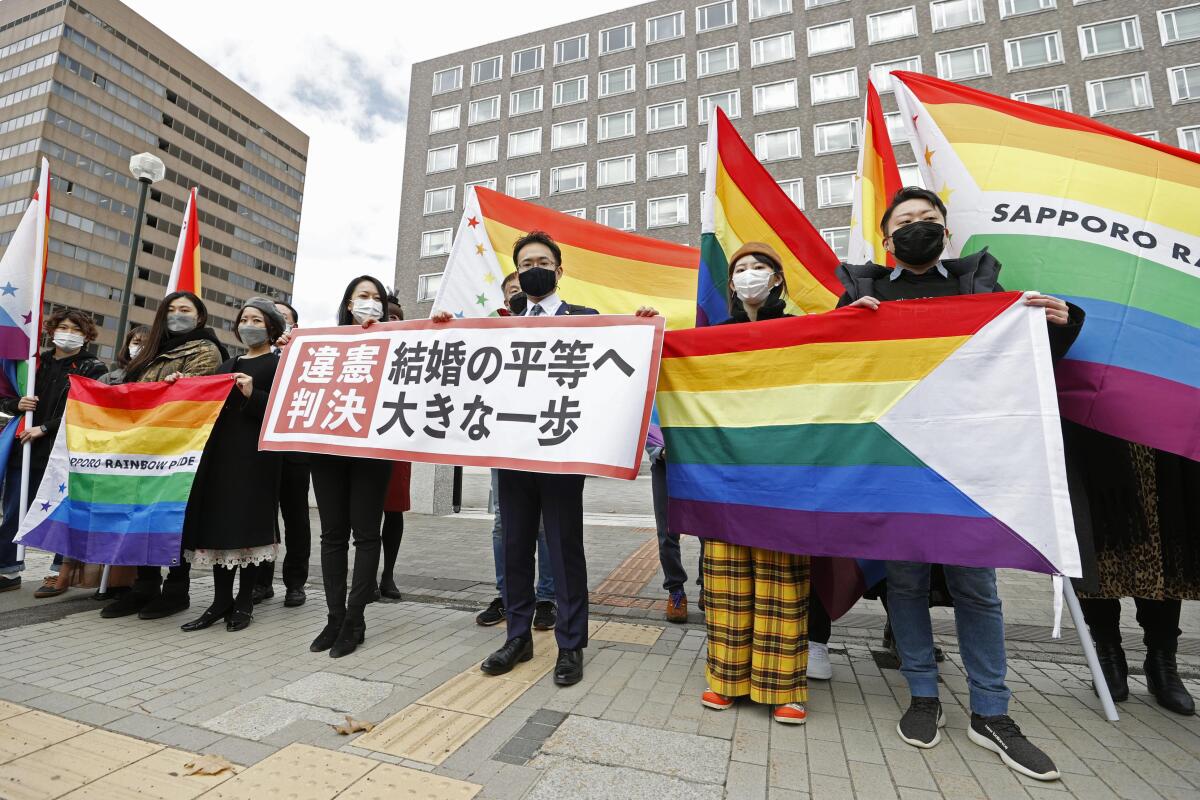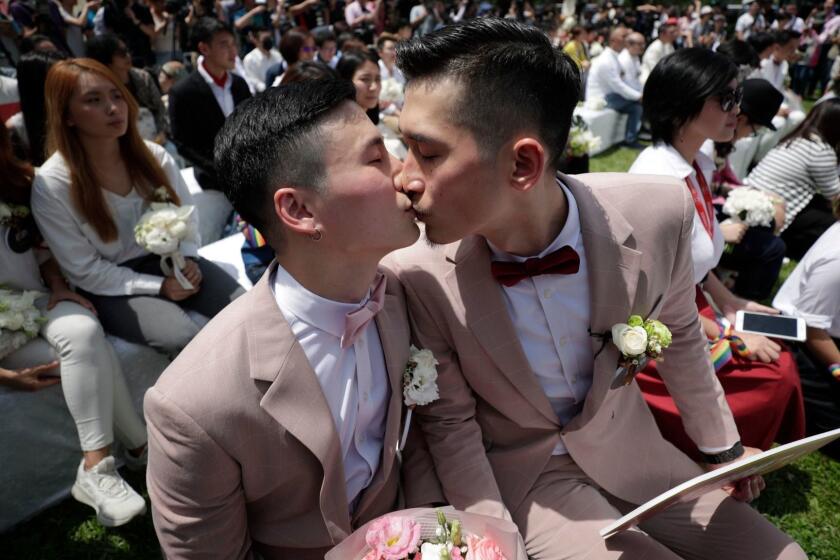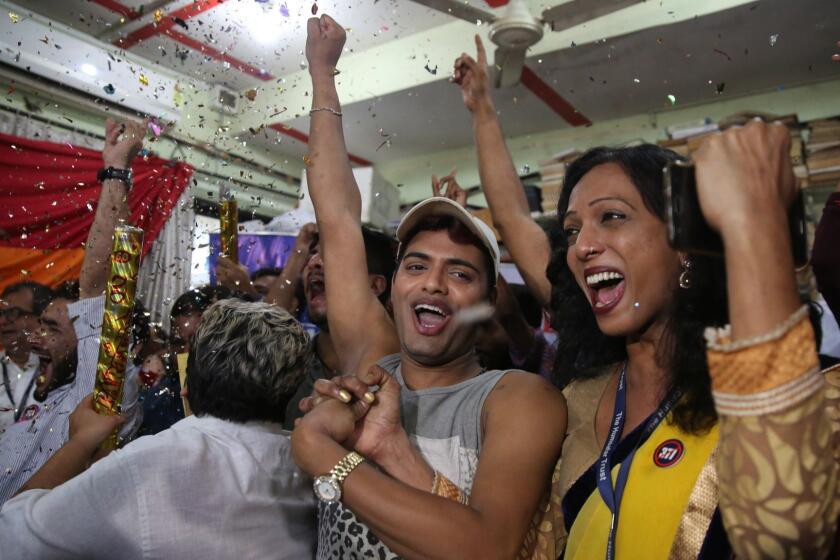Court says Japan’s ban on same-sex marriage is unconstitutional

TOKYO — A Japanese court ruled Wednesday that the government’s ban on same-sex marriages is unconstitutional, recognizing the rights of same-sex couples for the first time in the only Group of 7 country that doesn’t acknowledge their legal partnership.
Even though the court dismissed the plaintiffs’ demand for government compensation, the precedent is a major victory for same-sex couples and could affect similar lawsuits pending around the country.
The Sapporo District Court said sexuality, like race and gender, is not a matter of individual preference, and therefore prohibiting same-sex couples from receiving benefits given to heterosexual couples cannot be justified.
“Legal benefits stemming from marriages should equally benefit both homosexuals and heterosexuals,” the court said, according to a copy of the summary of the ruling.
Judge Tomoko Takebe said in the ruling that not allowing same-sex couples to marry violates Article 14 of the Japanese Constitution prohibiting discrimination “because of race, creed, sex, social status or family origin.”
Japanese law says marriage should be based on “the mutual consent of both sexes,” which is currently interpreted as allowing marriage only between a man and a woman.
Amber Wang and Kristin Huang felt a little nervous about showing their faces Friday.
The ruling does not mean an immediate change to government policy but could influence decisions on other lawsuits and prompt calls for the government to change the law.
Outside the court, lawyers for the six plaintiffs — two male couples and one female couple — and their supporters held up rainbow flags and a banner that said, “A big first step toward equality.”
The lawyers said they planned to appeal the ruling because it did not award the damages that the plaintiffs had sought — $9,100 each for the difficulties they had to face from not being able to legally marry.
“We need to make clear that the parliament has left alone the unconstitutional situation by abandoning its legislative duties, and have them take action promptly,” they said in a statement.
While awareness and support for LGBTQ people is rising in Japan, discrimination persists. Someone in a same-sex relationship cannot inherit his or her partner’s house, property and other assets, or have parental rights to any children. Some municipalities have enacted “partnership” ordinances so that same-sex couples can more easily rent apartments, but they are not legally binding.
In a society where pressure for conformity is strong, many gay people hide their sexuality, fearing prejudice at home, school or work. Transgender people also have difficulty in a society where gender identity is highly specific.
The movement for LGBTQ rights has lagged because people who don’t conform have been largely marginalized.
She read in the morning paper that the decision was coming, so the 24-year-old master’s student skipped classes Thursday and came to the Supreme Court building flanked by two friends.
Even though Japan is the only G-7 country that still refuses to legalize same-sex marriage, that is not unusual in Asia. Taiwan is the only place in the region to have legalized same-sex marriage, with thousands of same-sex couples marrying since the legislation passed in May 2019.
Japan’s ruling Liberal Democratic Party holds ultra-conservative, patriarchal views on family makeup, and its policies have hindered women’s advancement and acceptance of sexual diversity. Ruling lawmakers have repeatedly been criticized for making discriminatory remarks against sexual minorities as “lacking productivity.”
Chief Cabinet Secretary Katsunobu Kato told reporters that the government disagreed with Wednesday’s ruling. He said the government seeks to achieve a society more tolerant of diversity, but did not say how it would respond to the ruling, except that it would watch pending court cases.
Four other lawsuits are pending in Tokyo, Osaka, Nagoya and Fukuoka.
Breaking News
Get breaking news, investigations, analysis and more signature journalism from the Los Angeles Times in your inbox.
You may occasionally receive promotional content from the Los Angeles Times.
“I hope this ruling serves as a first step for Japan to change,” said one of the plaintiffs in the Sapporo case, who identified herself only as “Plaintiff No. 5.”
Japan’s refusal to issue spousal visas to same-sex partners for couples legally married overseas has been a growing problem, forcing them to temporarily live separately.
The American Chamber of Commerce in Japan last year urged Japan to legalize same-sex marriages, saying talented LGBTQ people would choose to work elsewhere, making the country less competitive internationally.
More to Read
Sign up for Essential California
The most important California stories and recommendations in your inbox every morning.
You may occasionally receive promotional content from the Los Angeles Times.












